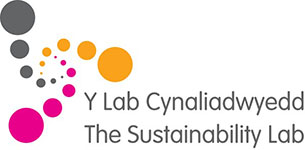Resources
- Publications
- Progress Reports
- Sustainability
Bangor University has a strong track record, appearing in the top 3% of globally ‘green’ universities in 2016. The University has achieved and retained ISO14001 and Green Dragon Level 5 accreditation. Reflecting the University’s commitment to becoming ‘the Sustainable University’, the requirements of the European Union on compliance with the Cross cutting themes of equal opportunities and environmental sustainability are core to the delivery of MOSSS.
Well-being of Future Generations
The MOSSS will operate collaborate with Bangor University’s Sustainability Lab to address the CCTs in the context of the Well-being of Future Generations (Wales) 2015 Act and to ensure that our team are able to demonstrate that we are giving meaningful consideration to the well-being of current and future generations in all we do.
- The Sustainable Development Principle is our overarching guide: We must act in a manner which seeks to ensure that the needs of the present are met without compromising the ability of future generations to meet their own needs. When developing MOSSS we need to consider the possible impact of our decision making on the people living their lives in Wales (and beyond) currently, and in the future.
- Whilst our main motivator is innovation by the University and collaborators to address the grand challenges to boost the economy, we recognise that the economy is interdependent with the environment, society and culture.
- To achieve this MOSSS will adopt five ways of working:
- Long-term thinking: Contributing to the long-term aspirations of Bangor University, the shellfish production sector and Welsh Government.
- Prevention is better than cure: Reviewing project plans to prevent problems from occurring, and conversely enhancing the R&I capacity of the University and helping Wales grow its share of the shellfish market.
- Integration: Integrating with other initiatives in University, and more widely, addressing climate change and resource efficiency, and other aquaculture, fisheries, food and farming activities, to provide opportunities in Wales and beyond.
- Collaboration: Those working in MOSSS, the wider University, the shellfish sector and marine environment collaborating to achieve synergistic goals.
- Involvement: Open and inclusive involvement of those who have an interest in achieving this, in the context of the well-being ways of working and goals.
- Lastly, we aim to demonstrate that our activities contribute to the following well-being goals:
- A prosperous Wales: Contributing towards an innovative, productive, low-carbon society that uses its resources efficiently and proportionately.
- A resilient Wales: Creating a healthy environment supporting social, economic and ecological resilience, a society that adapts to change
- A more equal Wales: Enabling people to fulfil their potential regardless of background or circumstances
- A Wales of vibrant culture and thriving Welsh Language: Promoting and protecting culture, heritage and language
- A globally responsible Wales: Considering wider impacts of our decisions and actions
Sustainable Development
Food Security and Resource Efficiency are identified as significant challenges and opportunities by the Welsh Government. Shellfish production is one of the most efficient and sustainable forms of food production, providing a range of ecosystem services including water quality regulation, carbon sequestration, coastal protection, habitat creation and support for biodiversity. Overall, resource efficiency is intrinsic to sustainable shellfish production – as evidenced by the Marine Stewardship Council accreditation of mussel production in the Menai Strait.
At the operational level of the project delivery, MOSSS will consider specific and generic activities provided for the region by WEFO in the Cross Cutting Themes Matrix for the European Regional Development Fund 2014–2020. For example MOSSS will:
- Work with the Sustainability Lab to co-develop an Eco Code that will inform MOSSS’ environmental sustainability delivery plan.
- Identify a SD Champion who will promote SD and well-being principles among the team and will ensure the implementation of the project Eco Code.
- Address the need for travel; the University’s IT department will provide advice and support on technical platforms in order to reduce travel-related carbon footprint.
- Select venues for events/meetings that are accessible by public transport and each event will consider sustainable travel options.
- Apply sustainable procurement principles and any due diligence checks will include environmental criteria – in accordance with Bangor University guidelines.
- Ensure that mechanical ventilation and air conditioning are kept to a minimum to reduce energy consumption and carbon footprint.
- Use the best practical means to minimise the amount of waste produced in accordance with the University’s ISO14001 procedures.
- Apply polices to discourage out of hours working as far as possible to cut energy use (and improve work life balance).
